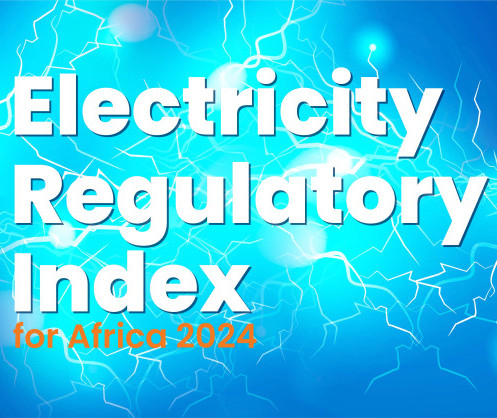For the first time, the 2024 ERI also assessed regional regulatory bodies, recognizing their growing role in harmonizing technical standards and enabling cross-border electricity trade
Kenya and Senegal have claimed the top spots in the African Development Bank’s 2024 Electricity Regulatory Index (ERI) (www.AfDB.org), demonstrating exceptional progress in power sector governance and regulatory outcomes. The comprehensive assessment, officially unveiled today at the Africa Energy Forum in Cape Town, evaluates regulatory frameworks across 43 African countries.
Uganda, Liberia and Niger round out the top five performers, with Niger registering one of the biggest gains, underlining the strong impact of sustained reforms and political commitment to power sector development.
The ERI evaluates three dimensions—Regulatory Governance, Regulatory Substance, and Regulatory Outcomes (ROI). Notably, the ROI, which tracks service delivery and utility performance, recorded the most substantial improvement across the continent.
Key findings from the 2024 ERI:
- Kenya and Senegal led with a score of 0.892, reflecting standout progress in tariff reform, regulatory outcomes, and utility performance.
- A remarkable 41 out of 43 participating countries achieved RGI scores above 0.5, representing a significant increase from 24 countries in 2022.
- Countries scoring below 0.500 reduced significantly from 19 in 2022 to just 6 in 2024.
- Even the lowest-performing country tripled its score—from about 0.10 to 0.33.
- The ROI surged from roughly 0.40 in 2022 to 0.62 in 2024, showing that reforms are delivering tangible service improvements on the ground.
Now in its seventh edition, the ERI shows strong momentum toward more effective, transparent, and impactful regulation, with real-world results beginning to emerge.
” We are now seeing stronger institutions delivering real results for utilities and consumers “
“The 2024 ERI shows that Africa’s regulators are stepping up. We are now seeing stronger institutions delivering real results for utilities and consumers. This shift is critical if we are to achieve Mission 300 and connect 300 million people to electricity by 2030,” says Dr. Kevin Kariuki, AfDB Vice President for Power, Energy, Climate and Green Growth.
For the first time, the 2024 ERI also assessed regional regulatory bodies, recognizing their growing role in harmonizing technical standards and enabling cross-border electricity trade.
As the backbone of Mission 300, ERI continues to inform the design and implementation of national energy compacts—currently active in 12 countries, with another 20 in development.
Bridging the Gap – Addressing Ongoing Challenges
While celebrating regulatory progress, the report calls for greater focus on regulatory independence, the financial viability of utilities, and the integration of off-grid and mini-grid systems into national frameworks. The ERI underscores that regulation must translate into better access, affordability, and reliability, especially for underserved rural populations.
The report outlines priority areas for enhancing regulatory effectiveness:
- Strengthening regulatory independence
- Enhancing accountability mechanisms
- Promoting transparency and predictability
- Improving stakeholder participation
- Deepening economic regulation and advancing cost-reflective tariff methodologies.
“The ERI 2024 tells a hopeful story. African countries are not just passing laws—they are implementing them. Regulators are transforming from administrative bodies into strategic institutions with measurable influence. However, challenges related to independence, financing, and enforcement persist,” said Wale Shonibare, Director for Energy Financial Solutions, Policy and Regulation at the Bank Group.
Launched in 2018, the ERI is a diagnostic and policy tool used by governments, regulators, and development partners to identify gaps, track progress, and prioritize reform efforts. The 2024 edition incorporates extensive feedback from utilities, regulators, and regional energy bodies.
The full ERI 2024 report will be available here (https://apo-opa.co/4kPeDmZ).



Comments are closed, but trackbacks and pingbacks are open.